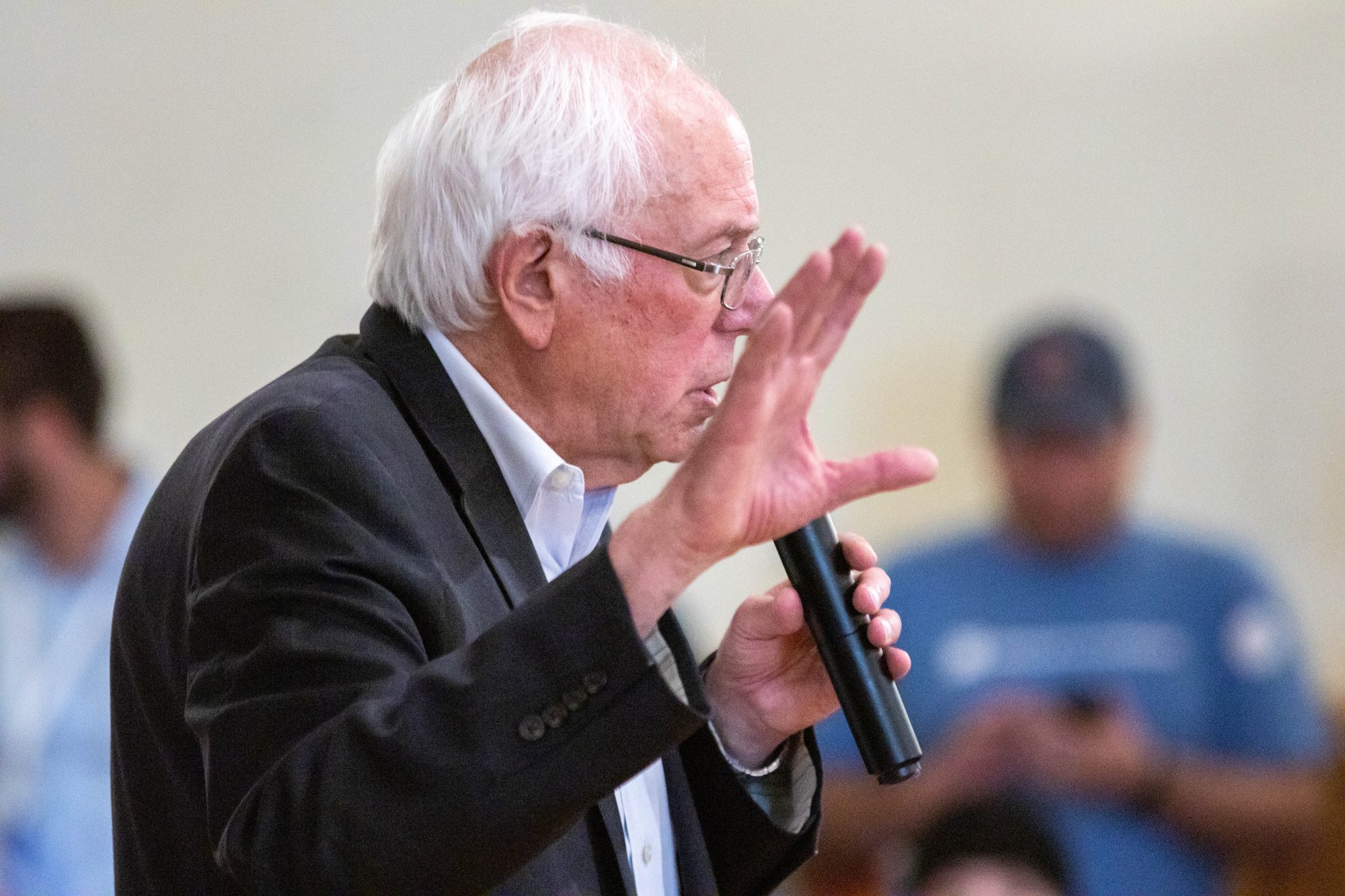Views expressed in opinion columns are the author’s own.
Bernie Sanders’ campaign underwent a near-perfectly timed surge ahead of the Iowa caucuses.
The national NBC News/Wall Street Journal poll had Sanders virtually in a tie with former Vice President Joe Biden the Friday before the caucuses. The poll had Sanders with 27 percent support among registered Democratic voters and Biden just behind him with 26 percent support. This recent polling bump for Sanders symbolizes an inflection point in what has been a roller coaster of a Democratic primary thus far.
Sanders’ candidacy has invigorated the left, and his policies have become a major part of the debate within the Democratic Party. Among them is his proposal of Medicare for All, the policy that has become virtually synonymous with his campaign. Under this system, private health insurance would be abolished and all citizens would be covered under a government plan.
Many progressives view Sanders’ surge as a glimmer of hope in a broken American political system, but others see the possibility of a Sanders victory as a risk that will almost certainly result in four more years of Donald Trump in the White House.
And while many of Sanders’ key policy proposals — like free public college, a tax on the super-wealthy and a cease to endless wars in the Middle East — are overwhelmingly popular, his signature issue is what will make him unelectable in a general election.
Even as polling shows an increase in Medicare for All’s popularity among the American people, support decreases dramatically when pollsters mention the elimination of private insurance. This suggests Americans strongly support universal healthcare coverage but also desire the freedom of choice that Medicare for All would eliminate from the American health care system.
Similarly, while potential general election polling of Sanders versus Trump tends to give him a slight edge, this is no reason to believe that Sanders’ Medicare for All is a viable position. The dynamics of a general election are different than a primary, and the unpopularity of eliminating private health insurance is a weakness for Sanders that could certainly be exploited.
Sanders’ passion on the issue of universal health care has not wavered over the last four decades, but neither has the reality that a government-run health care system would be disastrous for the American people.
Sanders’ Medicare for All Act of 2019 that he has proposed in the Senate will eliminate private health insurance entirely, taking away Americans’ existing health insurance and forcing them onto a government plan. And that’s exactly the problem with Sanders’ position on health care — it takes a dysfunctional health care system and makes it infinitely worse.
Sanders’ plan will take a health care system in which millions of American have good, high-quality healthcare and replace it with one where every American has equally bad government health care.
There’s no doubt that it is immoral Americans die every year because they don’t have access to adequate medical care. And in my view, every American citizen should be guaranteed health care as a right. But every American citizen should also be guaranteed the right to choose what type of insurance they want.
While Sanders promises that his government-run health care will be better and more comprehensive than existing private plans, there is no way for the American people to know for sure.
National health care systems in other countries have led to a decrease in the supply of doctors, stagnant development in medical research and long waits for medical procedures that are deemed non-life-threatening.
If Democrats want to win back the White House this November, they should back a candidate who supports a public option, which allows people to choose between government-backed insurance and private insurance. A public option would guarantee every American the right to health care, with the freedom to choose their insurance, at a fraction of the cost.
While Sanders may be surging in the polls, Medicare for All remains an electorally damaging proposal for the Democratic Party, and there are better options available to pursue than universal health care. Democrats need to abandon it if they want to recapture the presidency in 2020.
David Gordon is a sophomore government and politics and operations management and business analytics major. He can be reached at dgordon9@terpmail.umd.edu.



